Project Brief
The concept of ridesharing has evolved into a mainstream form of transportation for many commuters across the world. There are numerous applications that leverage on this concept and provide ride sharing services at affordable prices. These services have acquired a divers user base that includes working professionals, travelers, students, and beyond. With such a broad user base a need arises to cater to their diverse needs, but current ride sharing applications lack features that meet and anticipate such user requirements. Our team has identified additional user groups which we believe can benefit from an application that would meet their specific needs and offer a more personalized ride sharing experience.
The concept of ridesharing has evolved into a mainstream form of transportation for many commuters across the world. There are numerous applications that leverage on this concept and provide ride sharing services at affordable prices. These services have acquired a divers user base that includes working professionals, travelers, students, and beyond. With such a broad user base a need arises to cater to their diverse needs, but current ride sharing applications lack features that meet and anticipate such user requirements. Our team has identified additional user groups which we believe can benefit from an application that would meet their specific needs and offer a more personalized ride sharing experience.
The Challenge
Based on our prior experience, we noticed that people with special needs, pets, and excess luggage often face difficulty while using ride sharing services. There have been instances where the driver cancels the ride after arriving at the pick up location becuase they cannot accomodate some of the above needs.
The challenge was to identify a solution that would accomodate the needs of a more diverse user group.
My role
Research Interviews, data analysis, created paper prototypes, conducted usability testing of people with disability, created Mid-Fi Prototype, conducted usability testing of people with disability, driver and pet owners. iterated on Mid-Fi Prototype
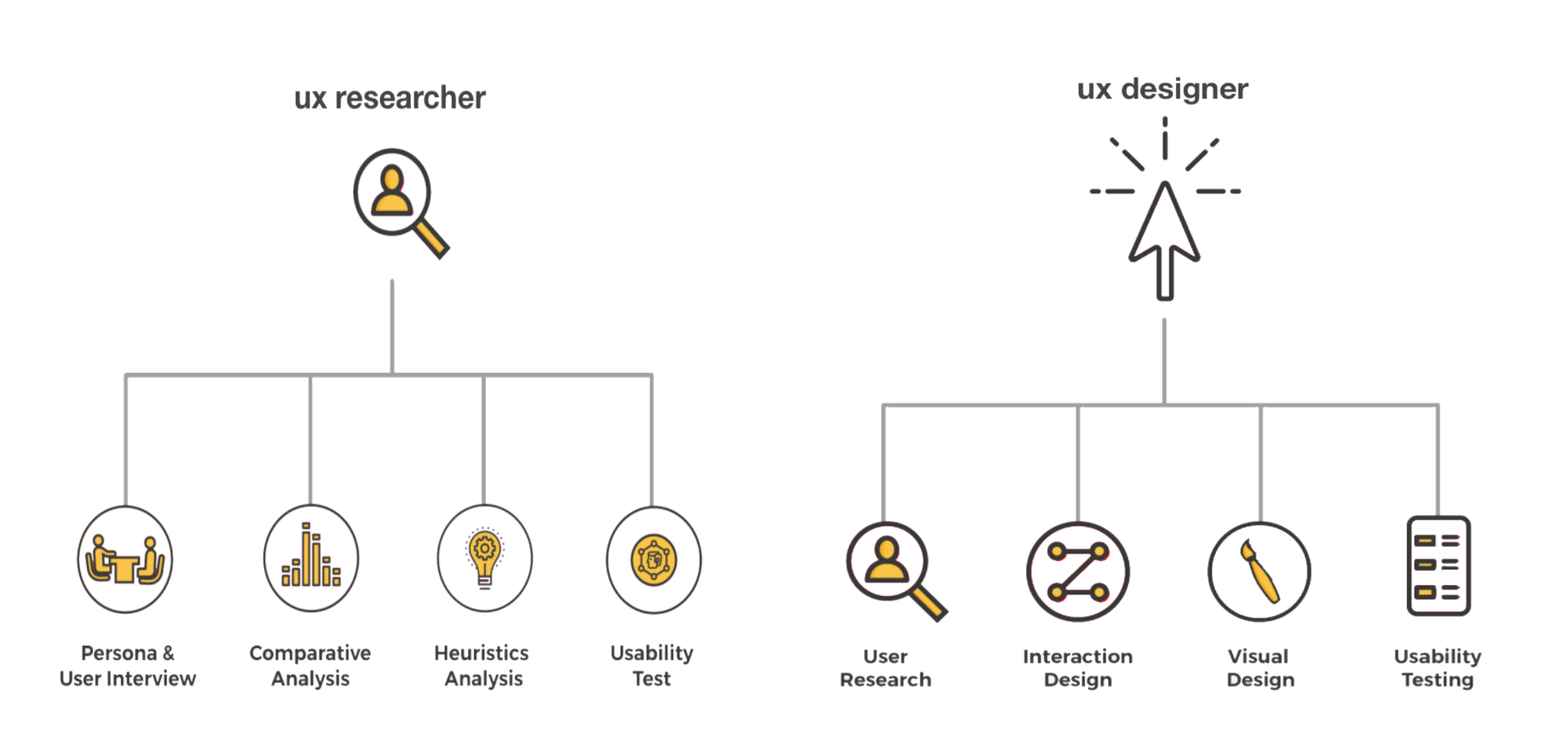
Process
The project was divided into two sections. In the first section, we were supposed to identify the key pain points in the existing ridesharing experiences of diverse users. This helped us narrow down to several problems we would like to research about and project the anticipated way people would approach the same aspect while using the RydePro.
We started our research by conducting an in-person interview sessions with users who are disable, pet owners and travelers with extra luggage to find out their experiences with rideshare services.
In the second half of project, we concentrated on User-Testing and iterative techniques by trying to solve for a particular need put forward. The research we did in the earlier phase helped us nice segway into this phase easily. We ended up creating an app with feature set and the ability to provide personalized experience that caters to the needs of these type of riders.
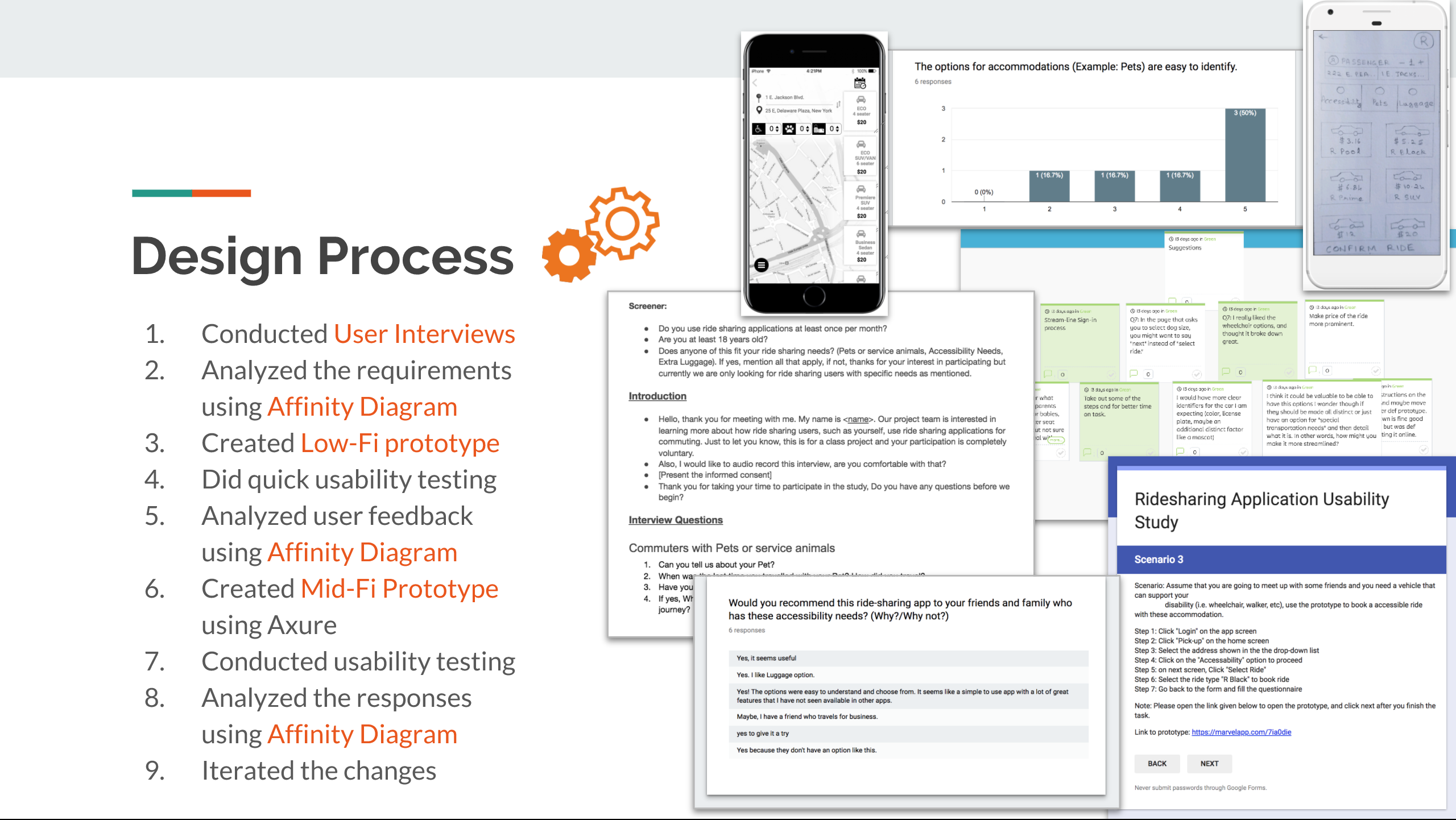
We interviewed 10 participants, 2 of which were pet owners, 2 were travelers with extra luggage, 4 users with disability, 1 driver and 1 medical professional. We managed to conduct usability testing of our paper prototype with 5 target users and tested Mid-Fi prototype with 6 target users. In total, we interacted with 21 different participants throughout the project.
After all the interviews, analysis, user-testing and the iteration we ended up creating an app with feature set and the ability to provide personalized experience that caters to the diverse needs of these type of riders.
User Problem
A user wants to book my ride without worrying that driver might cancel the ride at pick-up location because he can’t accommodate me or my pets or extra luggage. The user doesn’t want to call the driver and explain their condition. The user doesn’t want to wait and book another ride if the driver cancels the ride after arriving at pick-up location.
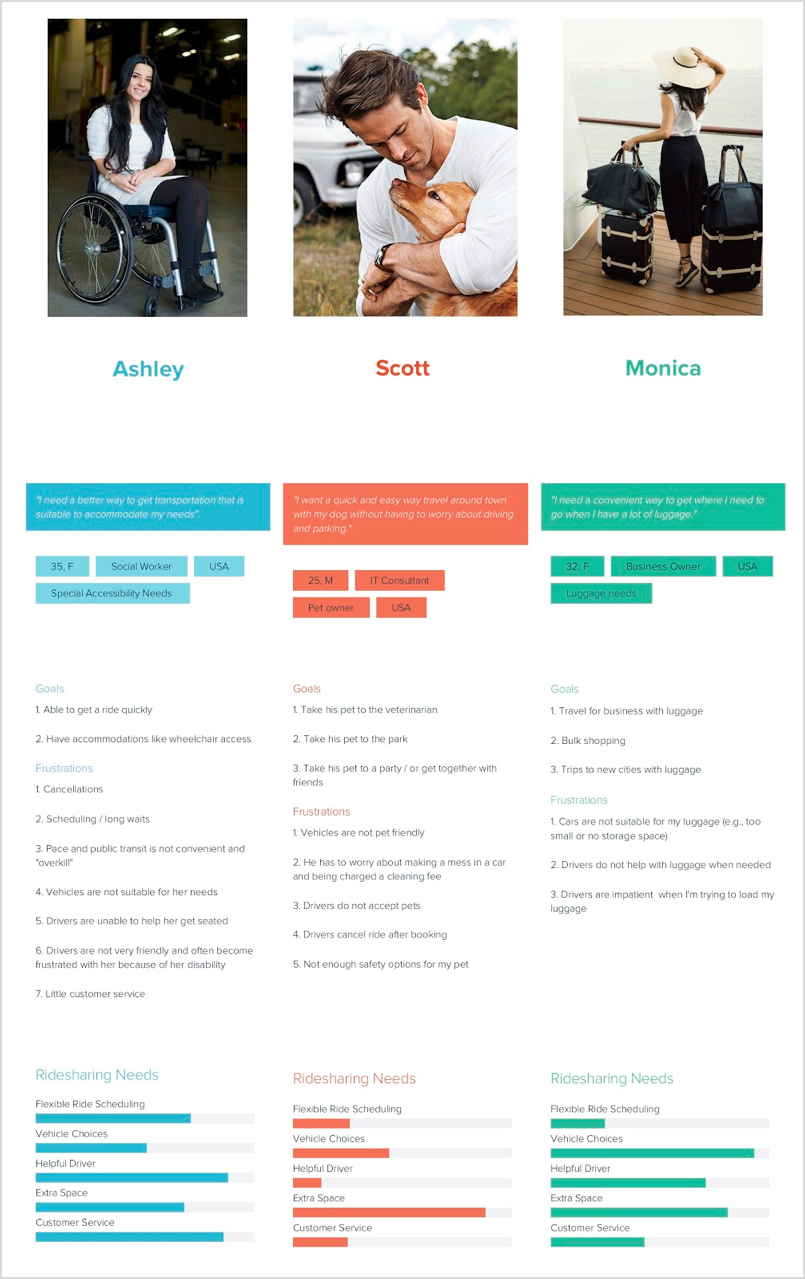
Discovery Phase
Designed structured interview questionnaire, conducted pilot interview, iterated on interview questionnaire and conducted 10 in-person interview sessions with our target users
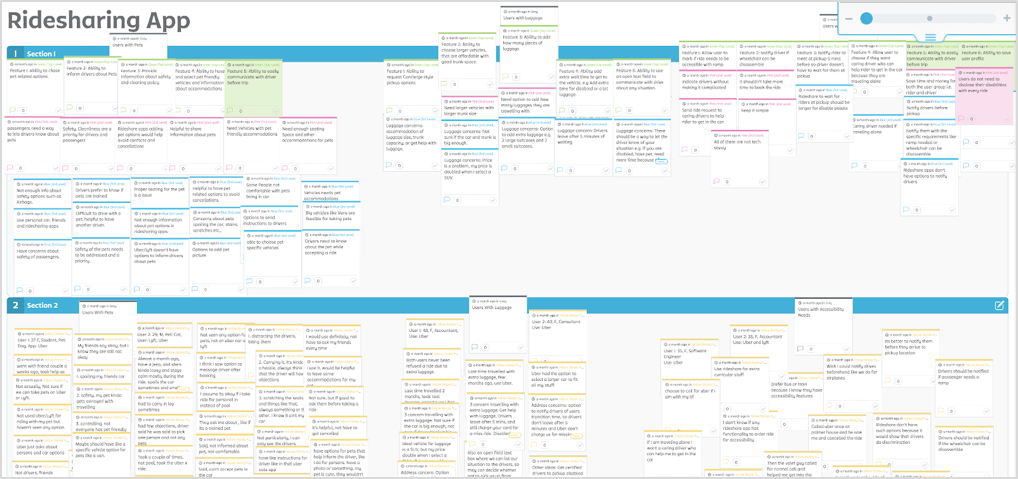
Research Findings
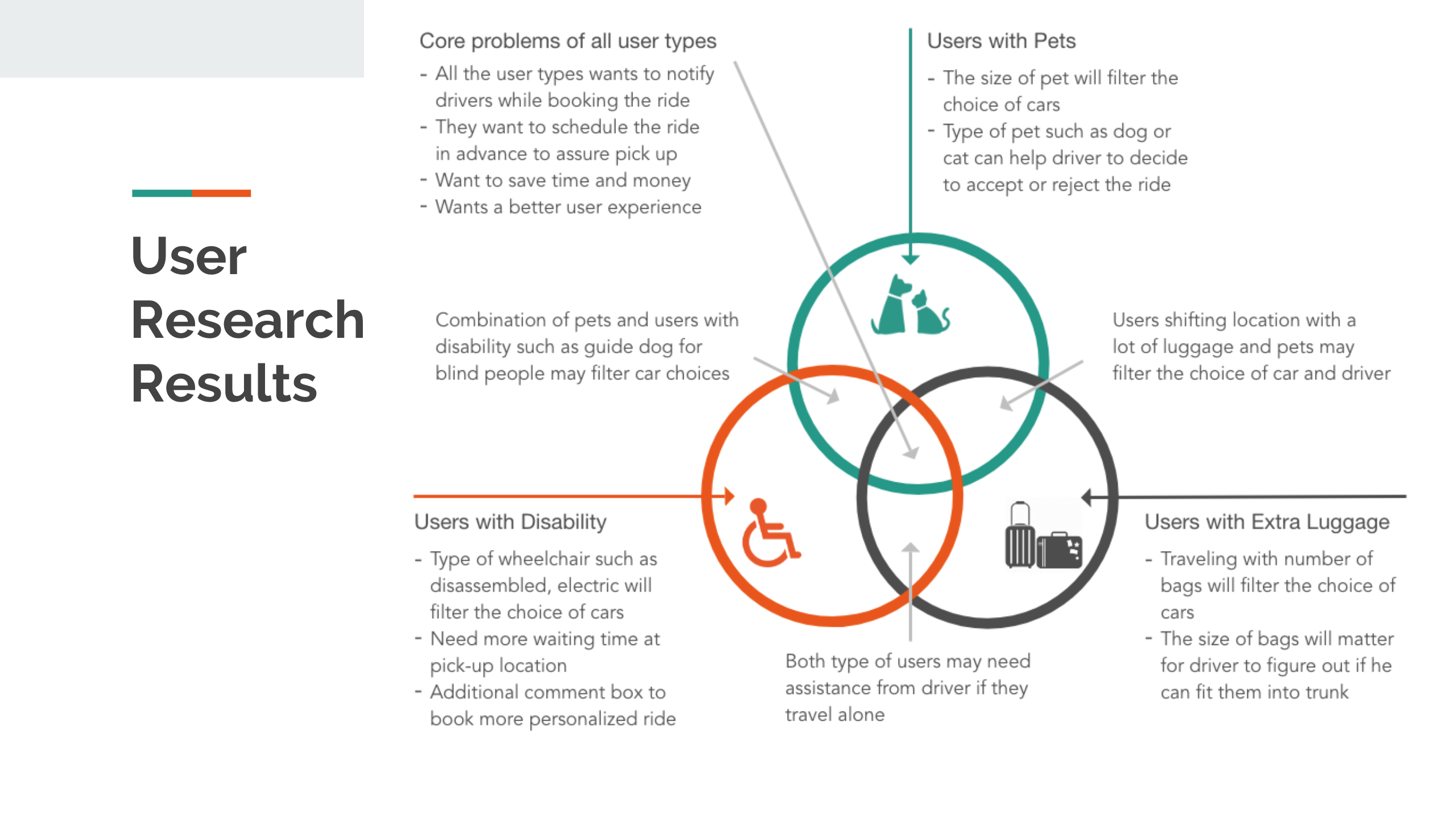
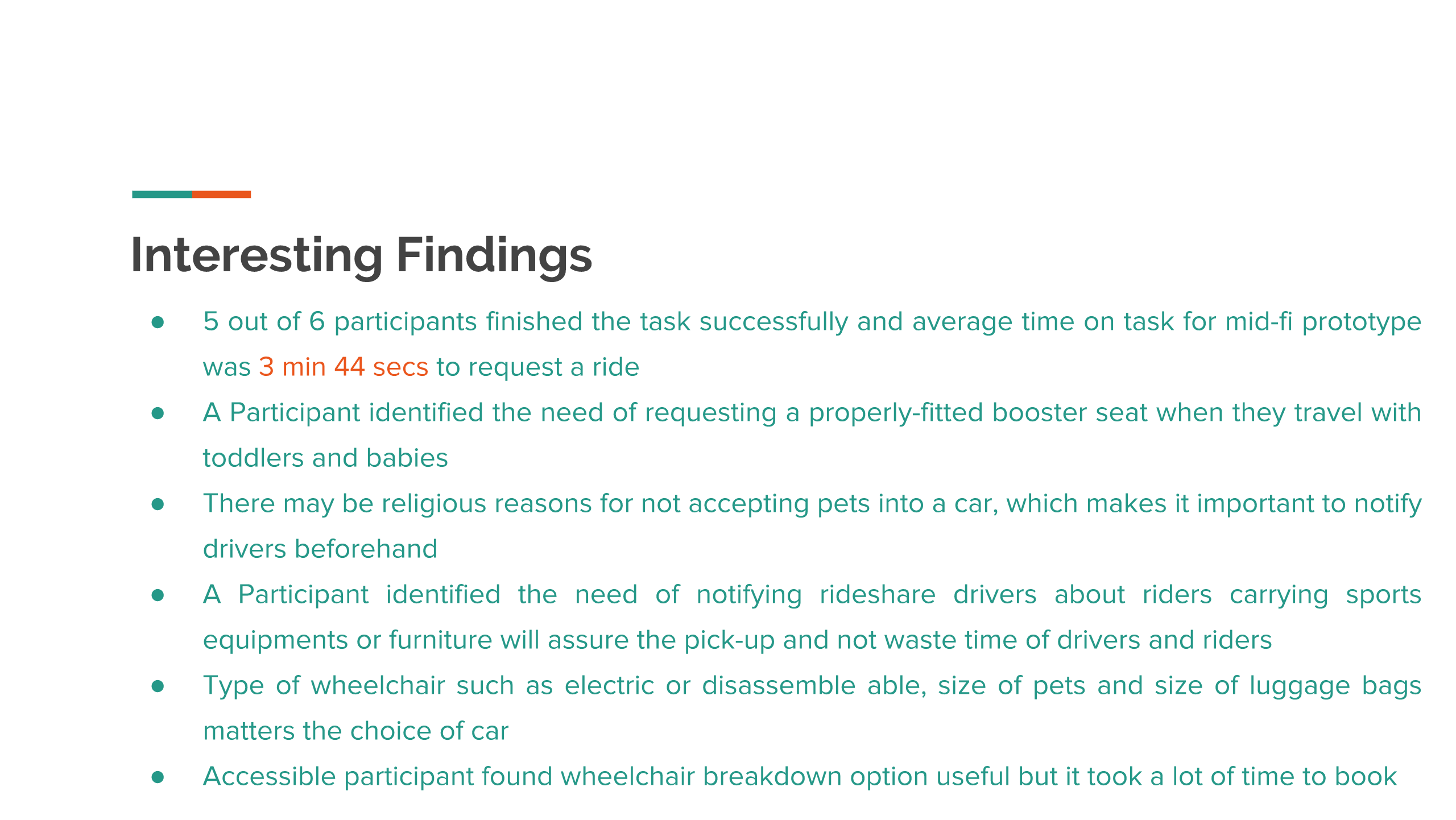
Sketches
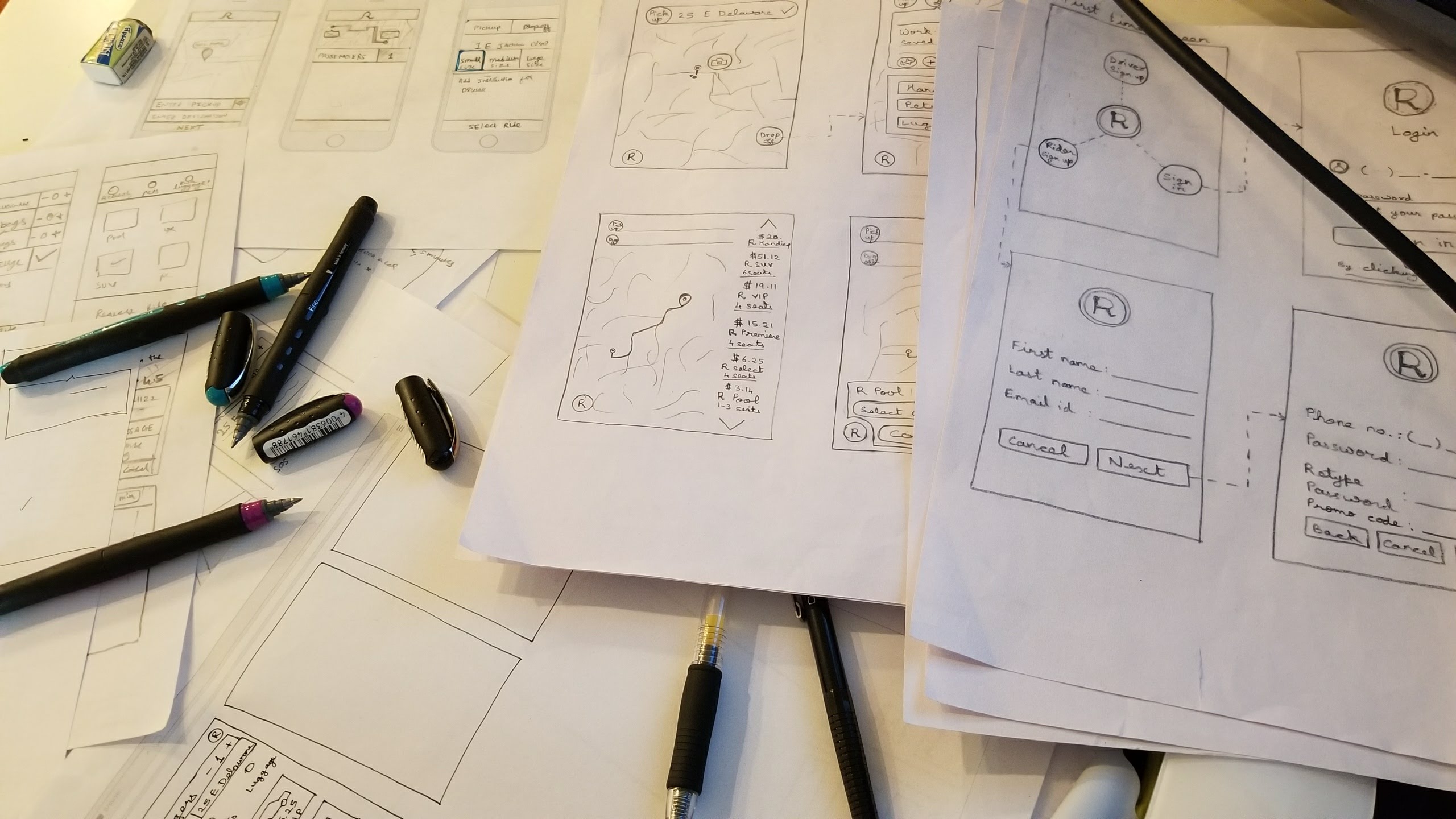
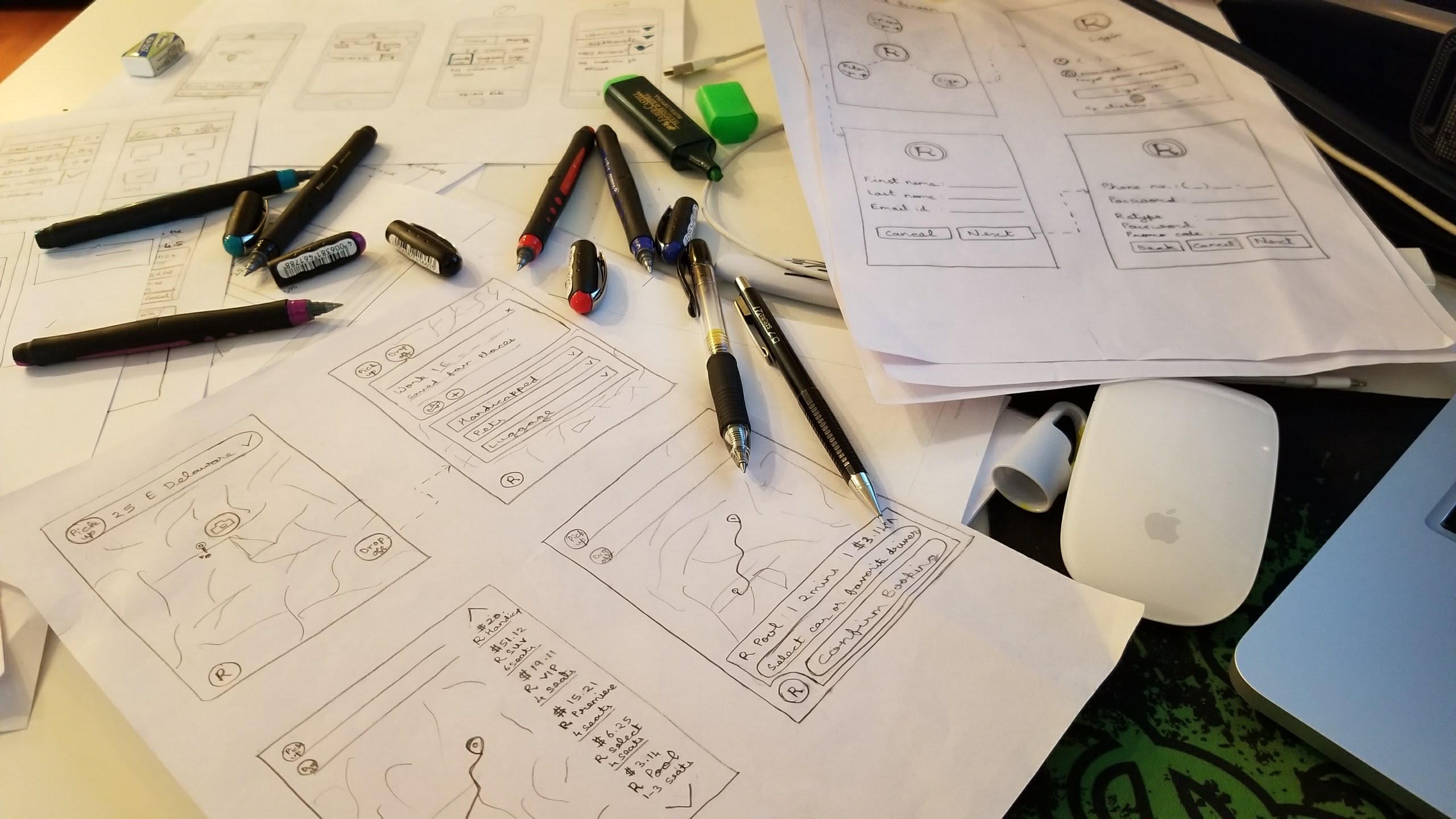
Key insights from User Testing the Low Fidelity prototype
Link to Prototype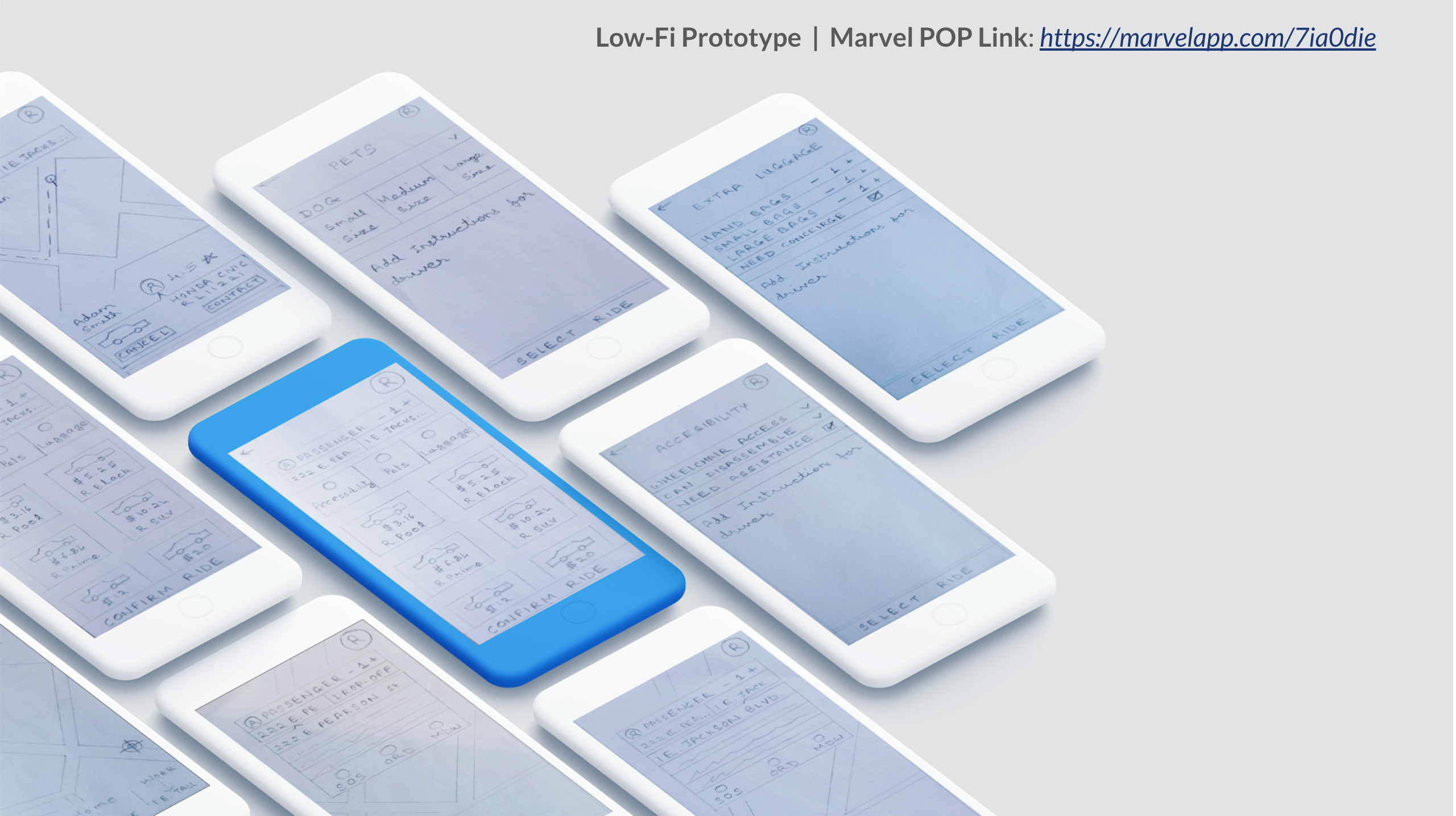
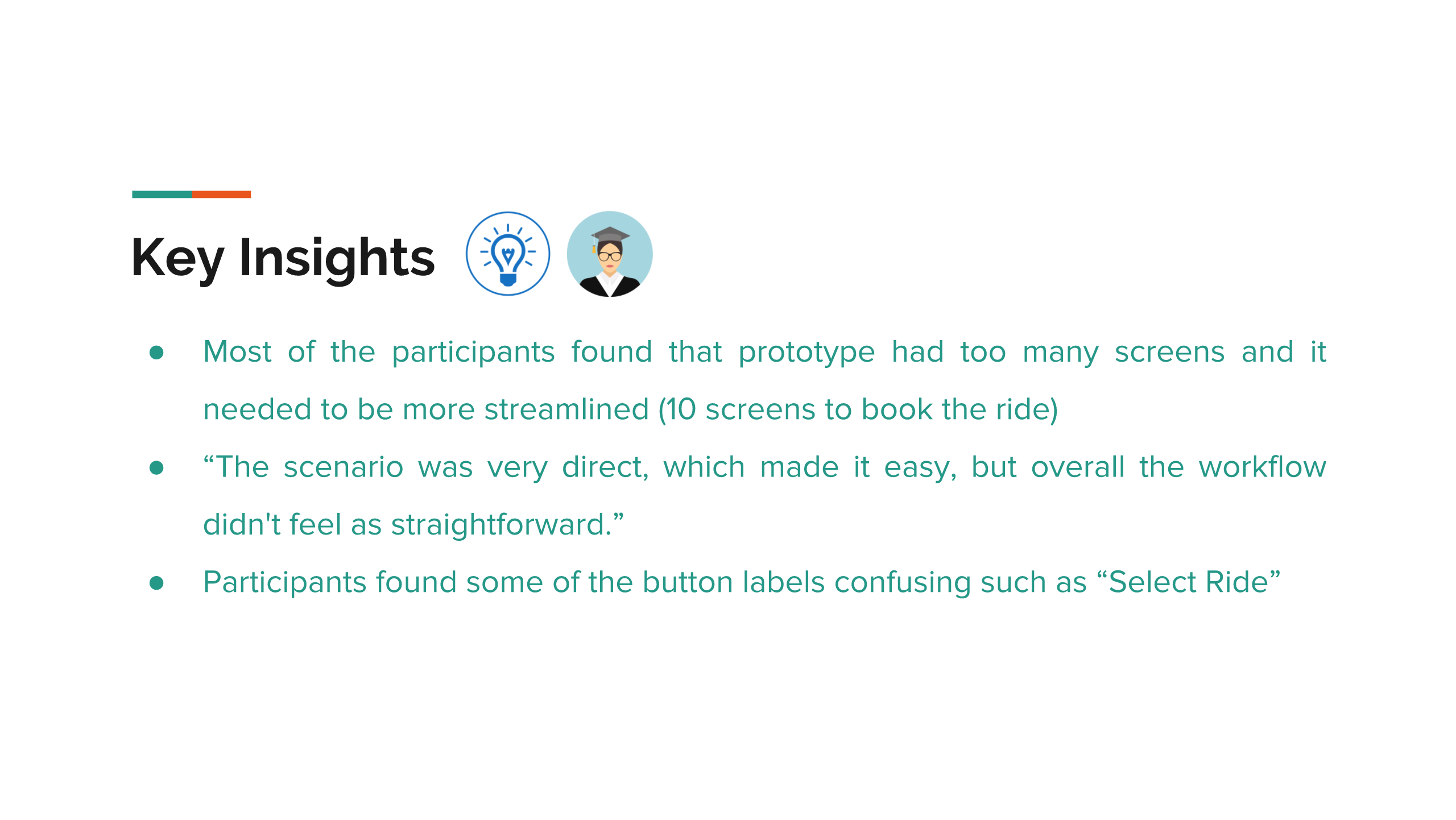
Medium Fidelity prototype
We iterated on designs based on the feedback we got from lo-fi usability testing. I designed experience and Visual Design assets using Axure RP for the mobile app.
Link to Mid-Fi Prototype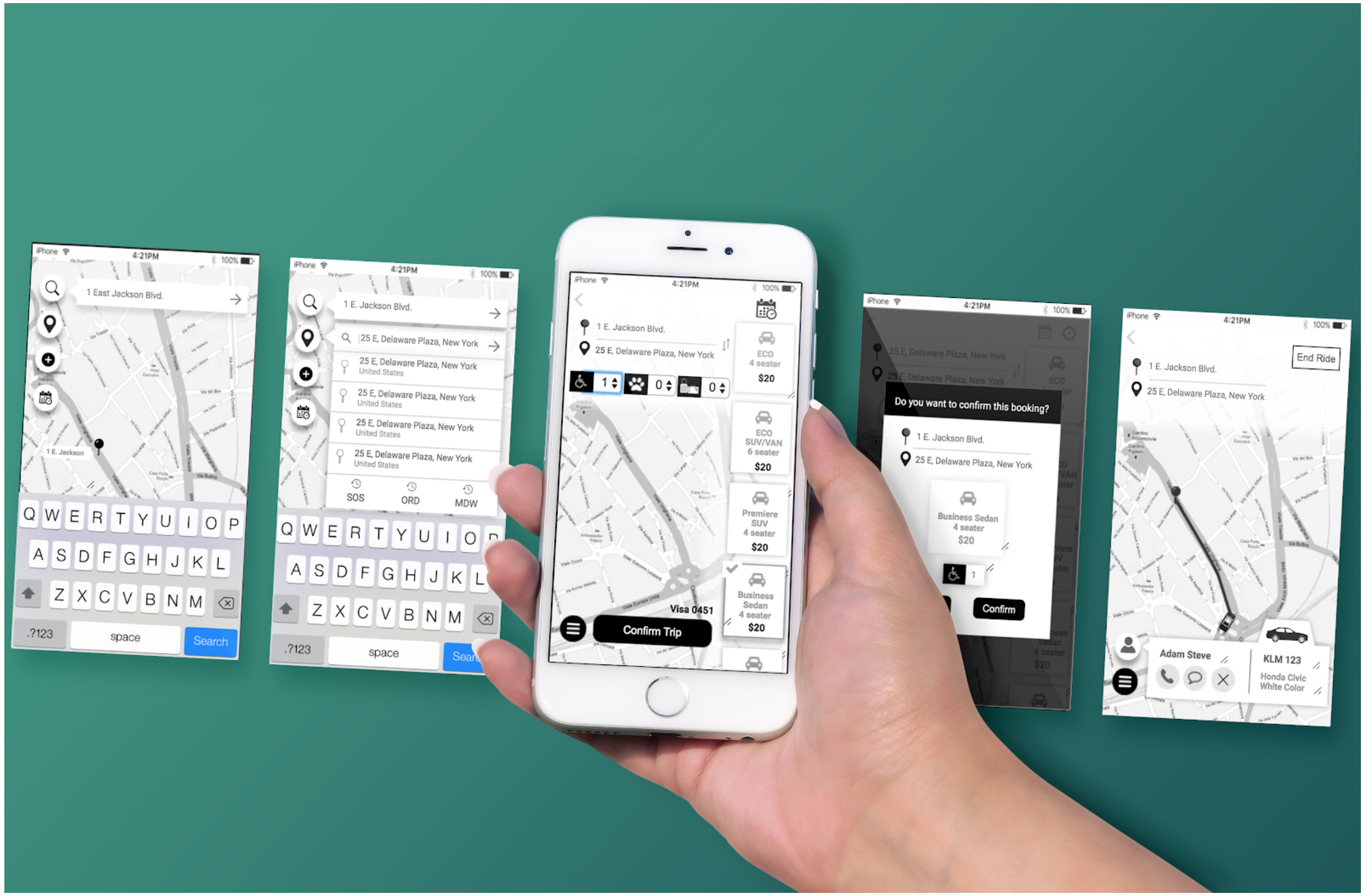
Testing the Mid-Fi Prototype
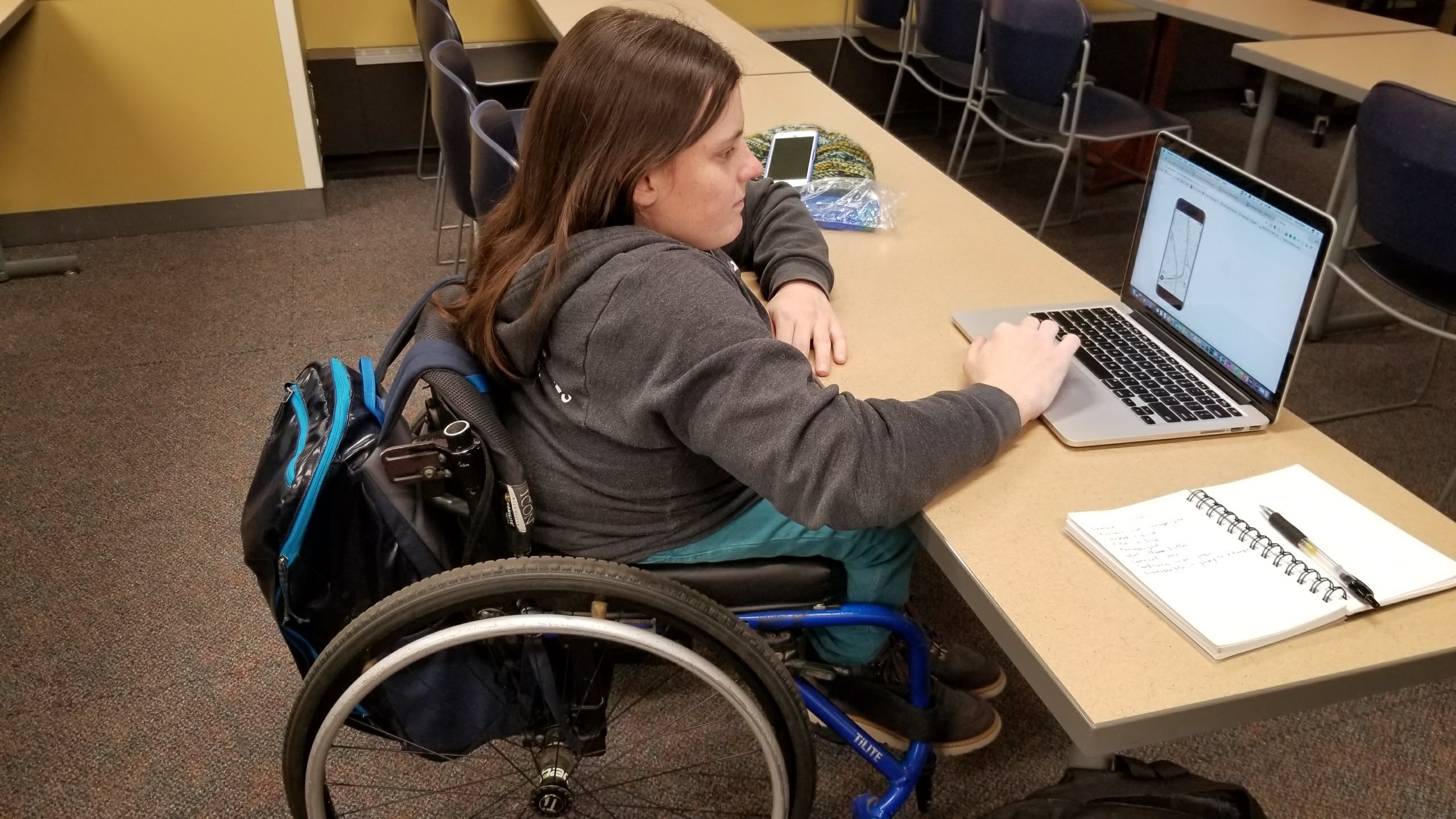
Iterations on the designs after User Tests


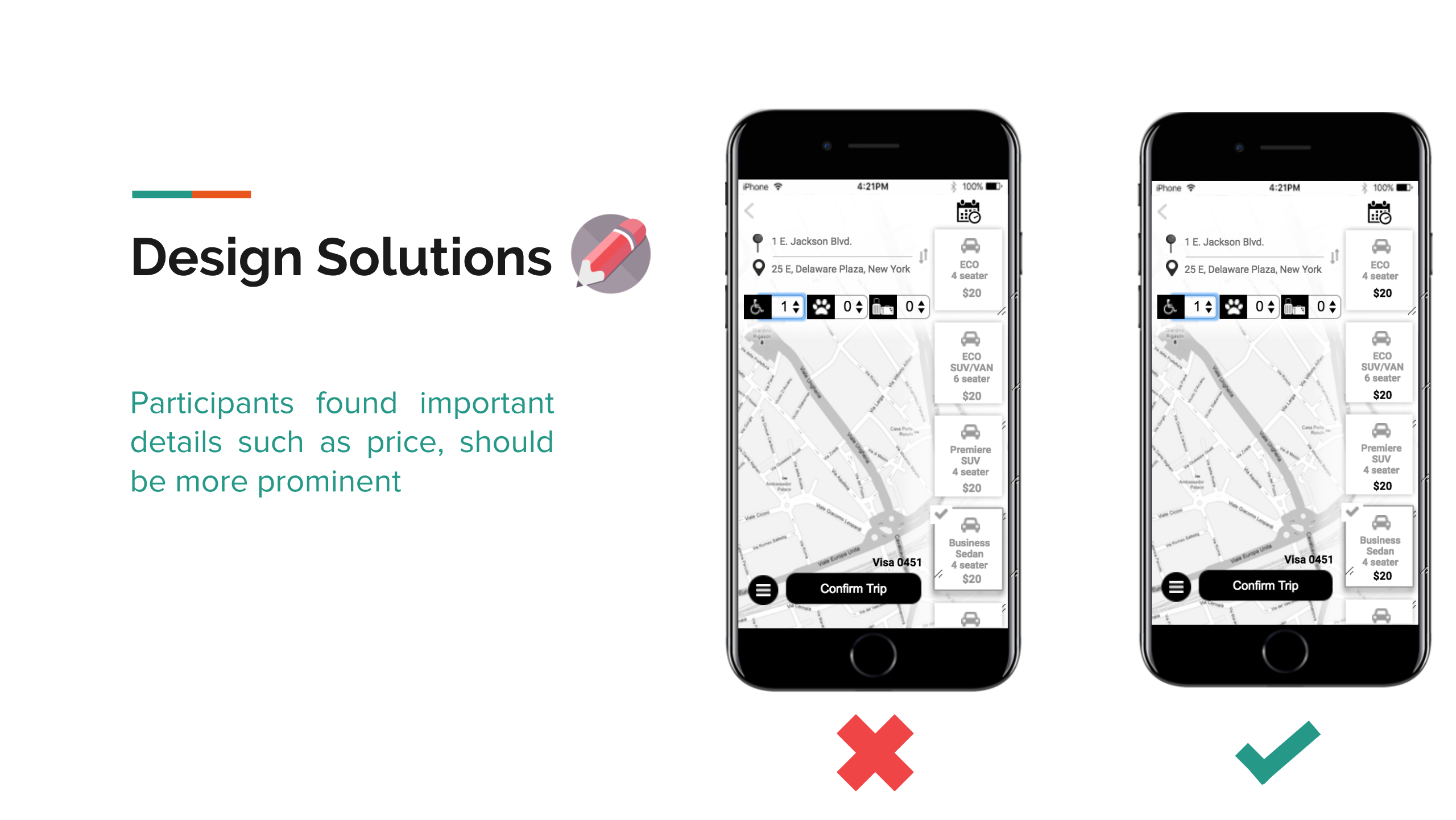
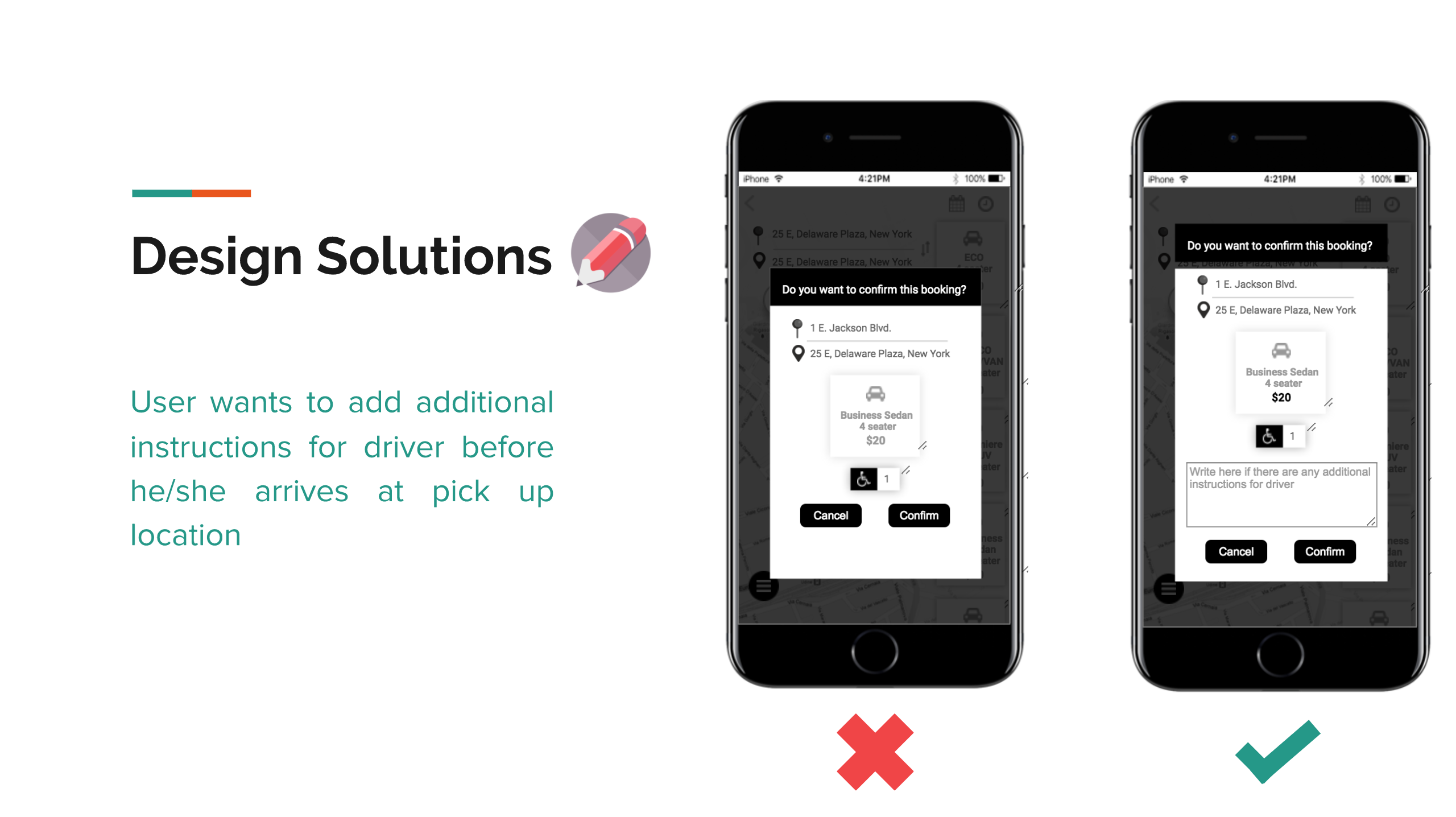
Project Impact
The two part project was done as part of the class project but IP of the project is with RydePro, a startup in Seattle. It was a great experience understanding their perspectives of the impact of research in the design process. Also, these projects allowed me to spearhead the project from research stage to design phase. Worked with an excellent team who believed in my proposal.
Challenges
- To work with multiple researchers on the team and have unified guidelines for consistency of research findings
- We struggled to gather all participants with disability for interview and usability testing
- The biggest challenge was to incorporate all the requirements and still maintain time on task with current rideshare services
- Control the scope of the project to meet the deadline of 10 weeks
Takeaways
- Researching in-person and listening to the pain points of the users, helped me iterate thrice on design drafts
- Research, if done right, can have a lasting impact on the design process
- The product is designed for users if it is well supported by research data
- Following Agile Scrum Methodology keeps the project progressive and on schedule
- Learned how user experience design reduces the cognitive load of the users
Interact with the prototype by clicking the link below
RYDEPRO